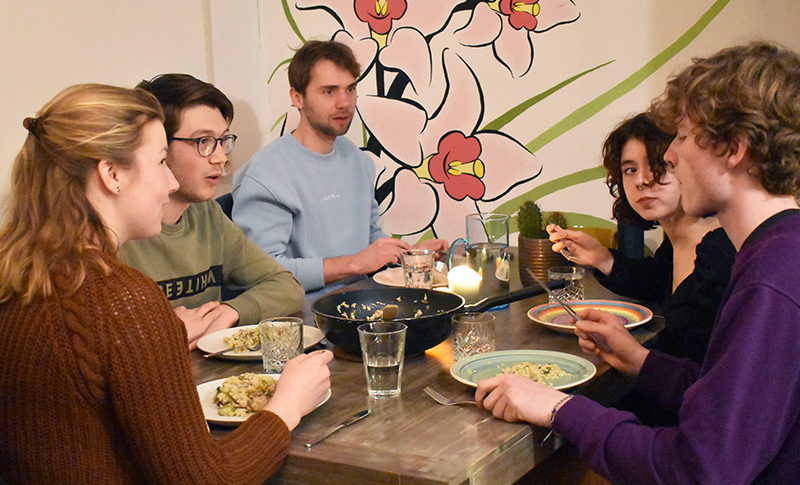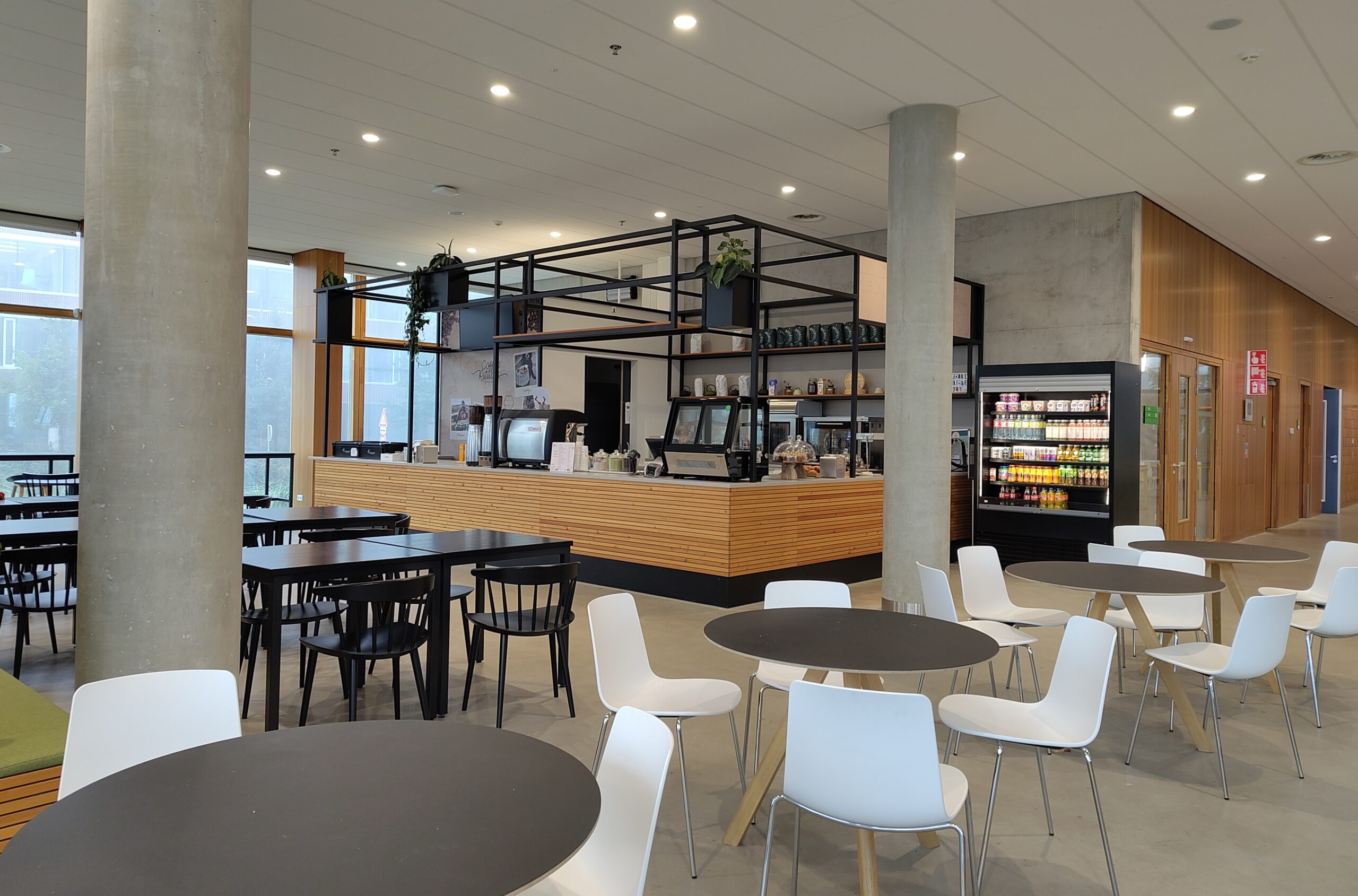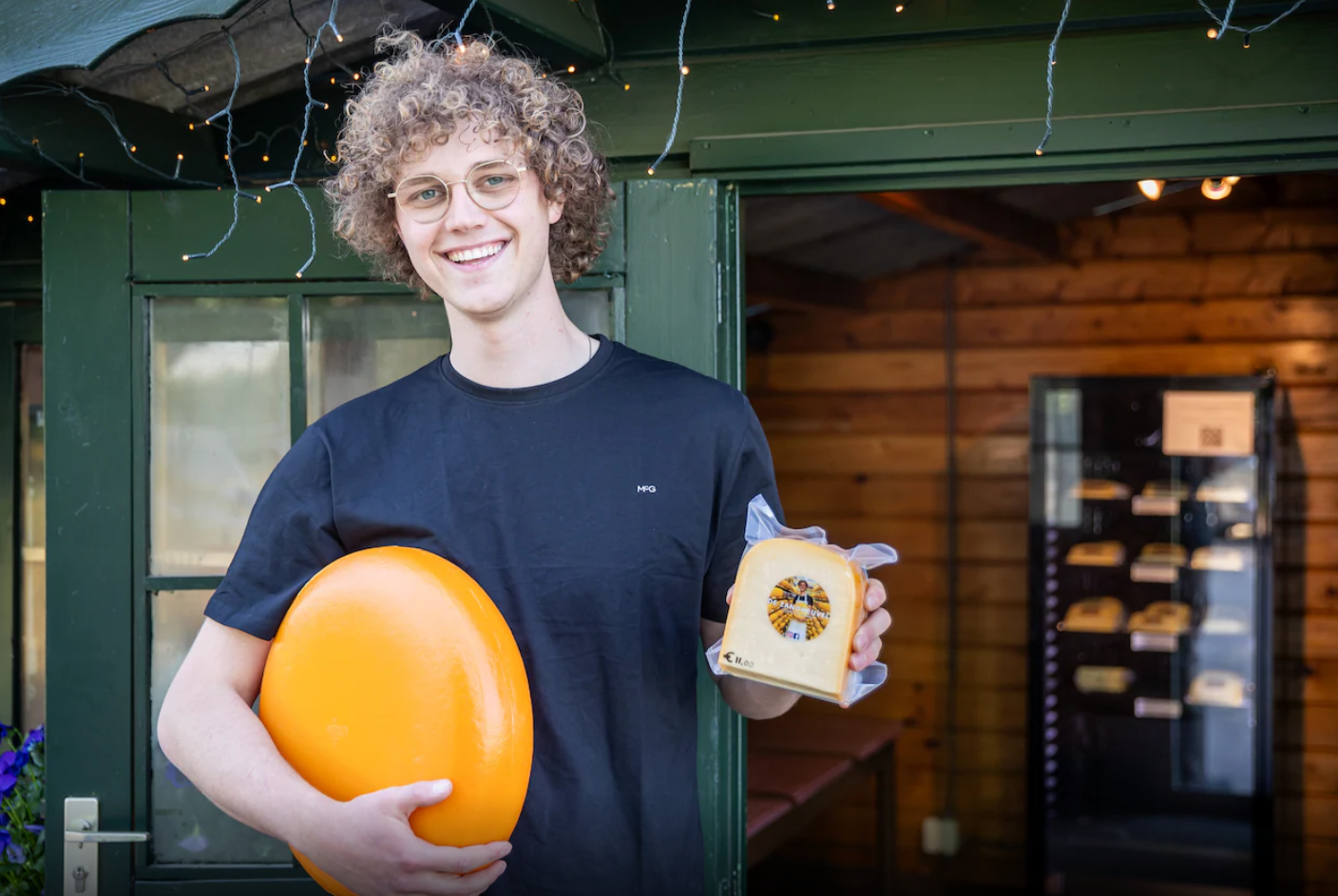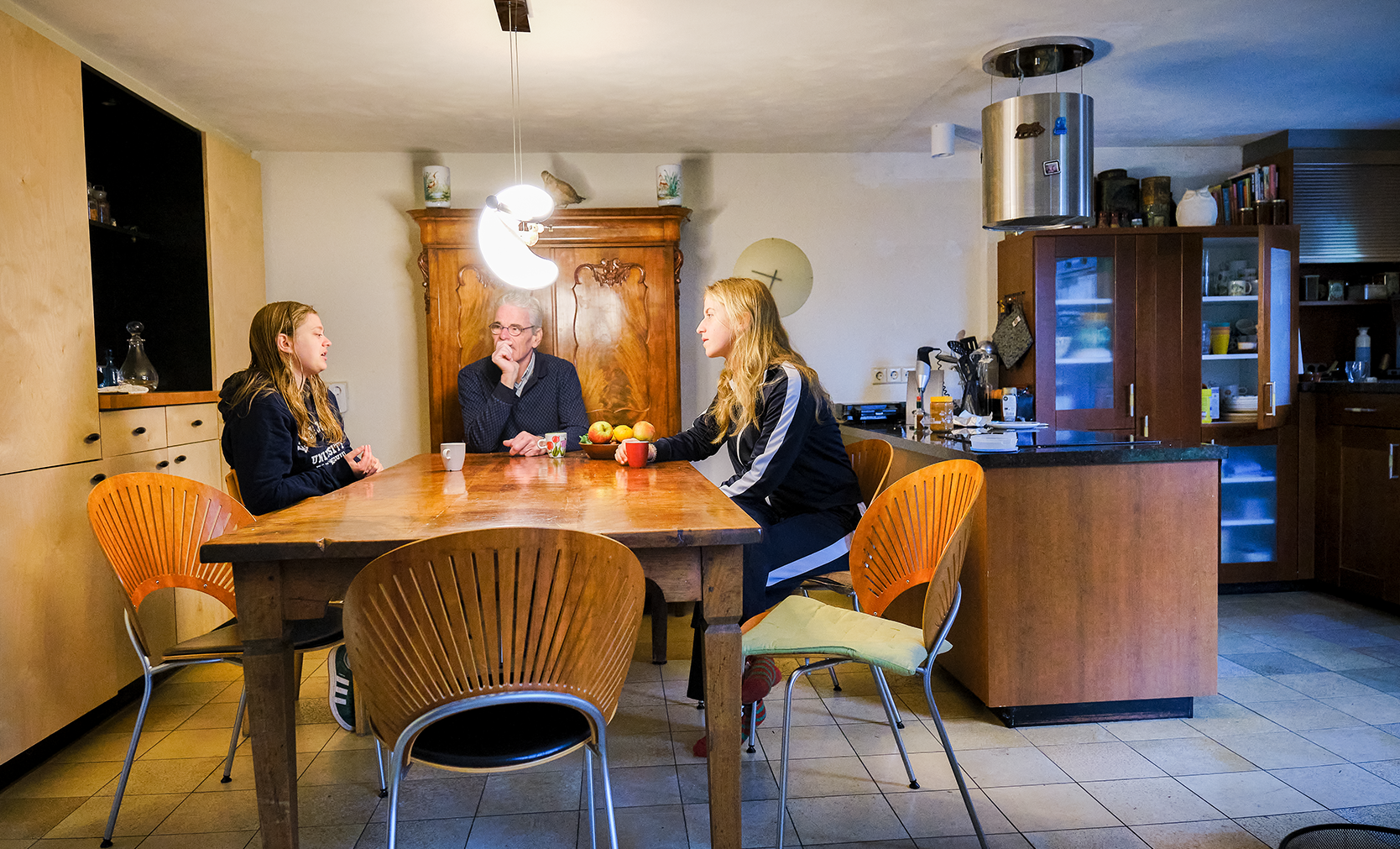Some students eat meat and others are vegetarian, but in Wageningen they continue to eat together. This is evident from interviews with 119 students. What is special about the interviews is that they were done by 60 first-year students on the Eating, Customs and Health course. Student Selke Riedel even co-authored the resulting article in the scientific journal Consumption & Society.
Selke Riedel could not have guessed a year and a half ago that her name would now be appearing on a scientific publication as a co-author (see inset for the results of the study). Back in period 6 of 2021, she was a first-year undergraduate student of Health and Society taking the course Eating, Customs and Health. Every year students on that course learn how to conduct interviews, but this time teacher Esther Veen (now a lecturer in Urban Food Issues at Aeres Hogeschool in Almere) had a new idea: to combine education with research and, if that went well, publish a scientific article.
Her fellow lecturer Anke de Vrieze (Rural Sociology) was involved in the interview technique practicals, and explains why they approached it differently this time: ‘Esther thought it was a shame we never did anything with the data from the interviews. Besides, we thought it would motivate students if we used the interviews for real research.’ That was certainly the case for student Selke Riedel: ‘I thought it was an interesting idea that this course could produce something special, something that other people could actually use.’ It was a win-win situation for students and teachers, says De Vrieze: ‘As teachers, we don’t have much time for research, so you are looking for data. Esther and I set up the course in a way that enabled us to use the data if it turned out to be good enough.’
Wageningen kitchen
To find a suitable research question, the lecturers went to Yolie Michielsen, a PhD student at Consumption and Healthy Lifestyles. Her research focuses on vegetarianism and the way meat eaters react to it. De Vrieze: ‘She studies what happens when meat eaters and non-meat eaters have a meal together.’ The student kitchens of Wageningen lend themselves to that question, as many WUR students have consciously adopted particular eating habits: meat eaters, vegetarians, flexitarians and vegans are all well-represented here.
So the research question was clear, but the lecturers faced a dilemma. ‘Previously, students got into groups to devise their own interview questions,’ says De Vrieze. ‘But if we want to use the data for research, we need everyone to work with the same questions so we can compare the interviews.
Who gets a chance like this, to co-write an article as a first-year student?
But that takes away the learning experience of coming up with your own questions.’ As a middle way, the students made a list of questions in groups, which the teachers then went through with them, distilling them to create the same questionnaire for everyone. ‘That way we had student input and still got a standardized questionnaire,’ says De Vrieze.
Each student taking the course interviewed one meat eater living among vegetarians and one vegetarian among meat eaters. Beforehand, they practised interview techniques by interviewing each other and learning how to pursue a line of questioning. In total, each group collected eight interviews, which they shared with another group. With the data from those 16 interviews, the groups each wrote their own report. Those reports and the data underpinning them were then sent to the teacher.
Student co-author
At that point, the course was over and the scientific research could begin. De Vrieze: ‘Esther compiled the data and decided that there was enough material to write an article about it. Then we asked students if they wanted to be co-authors.’
Riedel jumped at the opportunity: ‘I’m going for it,’ she thought. ‘Who gets a chance like this, to co-write an article as a student in your first year – something that only teachers and real researchers normally do? I saw it as a valuable learning opportunity.’ In the autumn of 2021, Riedel helped analyse the interviews to identify trends and exceptions. That took her a couple of weekends. She also participated in all the online meetings with the researchers and teachers and co-wrote the results section of the manuscript. She looks back on it now, a year and a half later. ‘I gained a lot of respect for the authors of the articles you have to read for every course. Now I know how much time goes into it. I found it really interesting.
Humour keeps things amicable
‘This research reveals new trends: a vegetarian diet is becoming increasingly normal and is accepted as a personal choice,’ says Hans Dagevos, a consumption sociologist at Wageningen Economic Research. ‘In short, plant-based is fine.’ Dagevos joined the team at the request of Esther Veen, then a lecturer at WUR, to link the study with the scientific literature. As diets become more individualized in the West, some experts predict that shared meals will become a thing of the past. The Wageningen students show that this is not necessarily so, says Dagevos: ‘They find ways of eating together in spite of their different diets.’ For example, by cooking vegetarian for everyone when a vegetarian is joining in, or cooking both a meat-based and a vegetarian version of the main course.
Students also appear to be tolerant of housemates with different diets. ‘They respect each other’s personal choice to eat meat or not,’ says the sociologist. Instead of moralizing about it, they use humour. ‘They avoid conflict at the table, but use jokes to make it easier to talk about their own choices and those of others.’ Although the interviews are limited to the WUR bubble, the research paints an optimistic picture of the future, according to the scientists.

 The study shows that Wageningen students avoid conflicts about being meat eaters or vegetarian at the table but use jokes to make it easier to talk about their own
choices and those of others. Pictured are students in a student room on Haarweg. Photo Sarah Scheid
The study shows that Wageningen students avoid conflicts about being meat eaters or vegetarian at the table but use jokes to make it easier to talk about their own
choices and those of others. Pictured are students in a student room on Haarweg. Photo Sarah Scheid


